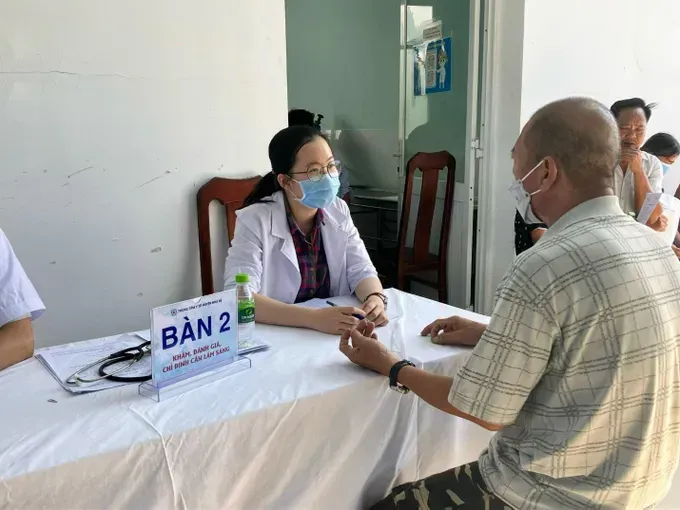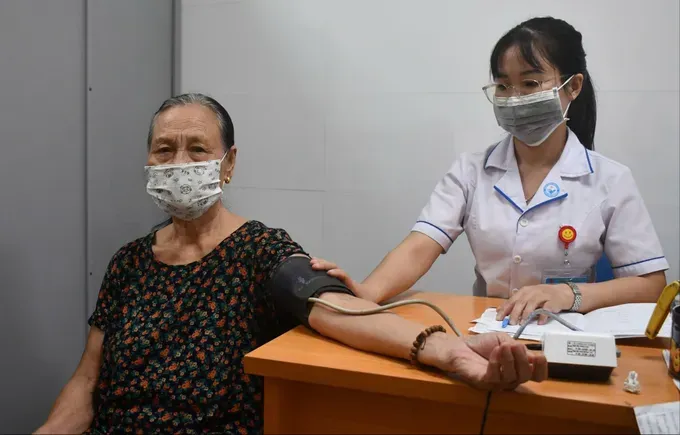
The People's Committee of Ho Chi Minh City has officially launched a new health plan aimed at providing medical check-ups and early detection of non-communicable diseases among the elderly. The program will be implemented from now through the end of 2025 and beyond.
The initiative aims to ensure that every senior citizen in the city receives regular health check-ups, enabling the timely detection and management of non-communicable diseases.
Under the plan, electronic health records will be created for each individual, enabling authorities to map health trends and disease patterns among the elderly. This data-driven approach is designed to support early intervention, improve treatment outcomes, reduce healthcare costs, and ultimately enhance the quality of life for Ho Chi Minh City’s aging population.
Under the new plan, all residents aged 60 and above living in Ho Chi Minh City will receive a free comprehensive health check-up per year, fully funded by the city’s budget.
The examinations will include full assessments across relevant medical specialties as outlined in standardized health check forms, along with necessary diagnostic tests in accordance with guidelines issued by the Department of Health.
In cases where certain diagnostic tests are not performed, medical staff must provide a clear explanation to the elderly patient, document the specific reasons, and obtain the patient’s signed acknowledgment.
Senior citizens must receive their health check-up results within 24 to 48 hours after the examination. If any signs of potential illness are detected, patients must be given appropriate medical advice, treatment guidance, or referral to a higher-level facility for further care, particularly in cases where the local clinic lacks sufficient equipment or capacity.

The Ho Chi Minh City People's Committee has directed the Department of Health to fully implement the city's annual health check-up program for senior citizens.
Local health centers have been tasked with coordinating with general hospitals and polyclinics to organize the medical examinations. In addition, the city will conduct training sessions and provide technical guidance for healthcare workers and program collaborators. These sessions will cover standard procedures for health screenings, early detection of non-communicable diseases, and the proper updating of electronic health records. The goal is to ensure medical quality, meet program timelines, and adhere strictly to professional regulations.
Health centers and local medical stations have been instructed to coordinate with ward- and commune-level People's Committees and special administrative units to review and compile lists of senior citizens residing in the areas. These lists will form the basis for developing tailored health screening plans across the city.
The Department of Science and Technology and the City’s Digital Transformation Center have been tasked with working alongside the Department of Health to implement information technology solutions that support the elderly health check-up program.
In addition, they will assist in the integration and interoperability of health check-up data into Ho Chi Minh City’s centralized data repository. This effort is aimed at improving the management, monitoring, and analysis of public health information across the city.
The People’s Committee of wards, communes, and special administrative units will take the lead in reviewing and verifying the actual number of elderly residents in their respective areas. This process will be based on population data provided by the police.
Local officials, including heads of quarters, hamlets, organizations, and population collaborators, will be assigned specific responsibilities for updating and verifying information about elderly citizens within the community.
Each month, authorities will compare the list of elderly people who have and have not participated in health check-ups and continue to mobilize, invite, and send additional invitations to ensure maximum coverage.
























